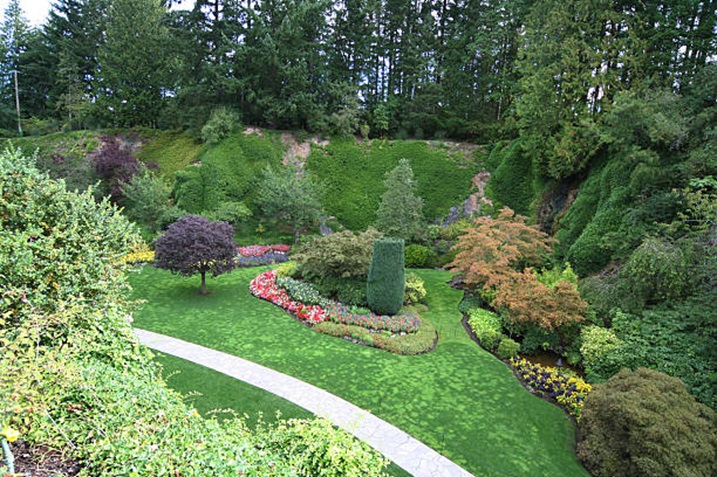French Landscape Designs: A Perfect Combo Of Elegance And Order

Order, symmetry, cool color palettes, stone elements, and neat spaces are what define a French landscape garden design. In this post, we will see the main features that make up a French landscape design that any leading landscape architect in Sacramento will incorporate in their French garden designs.
Order
Geometry and symmetry are the main hallmarks of French gardens. It is what makes French landscape designs easily recognizable. The Symmetrical gravel paths, ordered groves, neat topiary, Versailles citrus planters, and principal axes from which the design flows all make up a formal French design. During the 17th century, when King Louis XIV was at the seat of power, French landscape designers worked to extend the concepts of geometry and optics. They sectioned off the gardens with tall hedges and topiaries. The plants are often trimmed into ornamental shapes like triangles or spheres, which define the growth and shape of the plants. The plants are placed in rows along the principal axes of the garden and also line the pathways. The leading landscape architect in Sacramento will lay the pathways like hallways that lead to the different grove sections, planter beds, or lawns. The trees are also planted the same way, with identical ones lined up neatly or to line pathways after growing high enough. The tree tops are also trimmed in neat shapes.
Remember that French landscape designs are meant to be viewed from all angles; hence, the design is all about perspective. The principal axis is mostly crossed by one or more perpendicular alleys so that the eye is always drawn toward the central feature, a pool of water, a statue, or a chateau.
Neat And Defined Spaces
French landscape designs are known for their neat and defined spaces. The main plant creates a sense of order and control from where the ground level does most of the work by creating elaborate planting beds, the most easily recognizable aspects of a French garden design. These planting beds are often in the shape of elegant squares, circles, ovals, or scrolls. These shapes complement the design as well as the main house. The planting beds are edged with low boxwood or other shrubberies that help define the space and keep the edges clean.
As you move closer to the main structure, the planting beds get more complex as they may be filled with creatively designed boxwood which can be easily seen from the main structure. They are simpler farther out, mostly enclosing a water feature or grass. The lawns, too, are often square or rectangular in shape that create lines of interest across the main axis and also define the sections of the garden. Pathways are mostly made of gravel.
Color Scheme
French gardens usually have a cool color palette that emphasizes whites and greens. Rows of lavender may be added to bring in purple, and the reflecting pools add the cool blues. In the 17th century, ornamental flowers were rare in France. Hence their color palette remained limited. So the plants, bushes, and topiary had to add some unique features, due to which they were trimmed in geometric forms. Other structures, like an iron bench, pergola, or trellis, were added to add a hint of grays and blues, thus giving a cool color scheme. Water features like pools, reflecting ponds, and fountains added geometric patterns due to their circular or rectangular shape.
Stone Elements
Stone is the easiest element to add to a French landscape design, whether in the form of an estuary, gravel paths, or terraces. Stone elements add a balance against the plants and underpinnings to the entire plan. It can also edge the planting beds or create pathways for enforcing the order by controlling the route, thus continuing the geometrical aspect with straight lines. Other stone elements are also added, like statues, follies, and columns that provide points of interest to the design. These structures are often the central features marked by enclosed groves or intersections on pathways.
Stones are also used to line pathways in a repetitive and ordered pattern. The classic French style also adds sculpture and statuary, mostly of mythological figures like Goddesses, warriors, nymphs, and cherubs. Stone is more than just a decorative element in a French landscape design. It is often used for making up the terrace where one can enjoy the view of the whole garden. They are also used to border boxwoods and planter beds.
Bottom Line
The grand garden at Versailles is a classic hallmark of a French garden design. But this setup is also used for something as simple as a potager or a kitchen garden where the planting beds are sectioned off for specific herbs and other plants used for cooking. French landscape designs require special care and control, but the results you get will be worth your efforts. These designs have been attracting and inspiring garden lovers from all around the world.